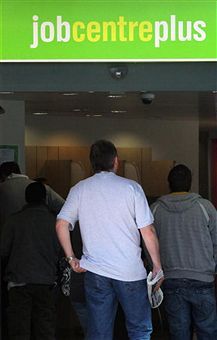 Youth unemployment in the UK has hit another record. More 16 to 24-year olds are out of
work than ever. The unemployment rate in this group is now a shocking 20.5 percent, which amounts to nearly a million young people out of work. Of those, 600,000 have never had a job since leaving
school or college.
Youth unemployment in the UK has hit another record. More 16 to 24-year olds are out of
work than ever. The unemployment rate in this group is now a shocking 20.5 percent, which amounts to nearly a million young people out of work. Of those, 600,000 have never had a job since leaving
school or college.
All unemployment is bad news, but youth unemployment is particularly bad news. We want young people who leave education to get a job, learn the skills and disciplines of work and build up the experience that will help them be upwardly mobile. That benefits them, obviously, and it benefits the whole community too.
But instead of young people getting into the work stream, too many are getting into the welfare stream. The skills they are learning are those of how to live on social benefits, rather than in work.
So why are these figures so bad? Yes, we are in difficult economic times, with stagflation back in a big way, just like it was in the 1970s after a similar period of profligate public spending and borrowing. But why should that cause youth unemployment to be so much higher than the average?
The answer is employment regulations. Take, for example, the minimum wage. At £4.92 for 18 to 20-year-olds and £5.93 for those 21 and over, it is not much. Nevertheless, many employers figure that many young people are simply not worth even that amount to them. Many will have no work experience at all, and many more will have no marketable skills. They have to be trained up and integrated into the world and habits of work. It is an indictment of our education system, but employers often find that young people lack even the most basic life skills they need to hold down a job.
Other regulations that make it hard to lay workers off once you have hired them just add to employers’ reluctance to take on inexperienced staff. They want people whom they know will be worth the wages they are paid.
We should scrap the minimum wage, and much other employment legislation, for young people. After all, it’s doing a million of them absolutely no good anyway, because they are not in work earning any wage. It just prices them out of jobs. They would be better off accepting lower pay, but getting the work experience that would qualify them for better jobs. But that’s not allowed.
For young people, low paid work is a way station to a better job, and in years past, most of them never regarded it as anything else. Today, though, the regulations that are supposed to protect workers instead force them into life on the dole.
Eamonn Butler is Director of the Adam Smith Institute






Comments